
































Airlines, Airports and Airliners News 2 to 8 Nov 2020

LIFT SA'S NEWEST AIRLINE TO TAKE TO THE SKIES IN DECEMBER
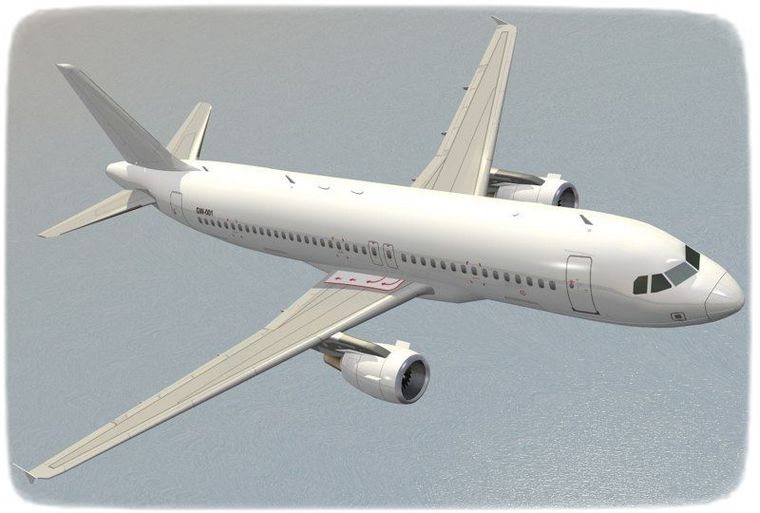
Lift Airlines, the brainchild of Gidon Novick, the founder of kulula.com, has confirmed that it will be ready for the expected tourist traffic between the JHB to Cape Town route.
The announcement was made when the winners of the name the airline competition was announced. The name 'Lift' was selected from more than 25,000 suggestions. The eight people that had suggested Lift will share the main prize valued at R480,000.
Lift Airline's website is live and prospective passengers can sign up for flight alerts.

Comair's business rescue process navigated past two important milestones this week as the investors secured the required credit approval from various lenders of debt funding, as well as approval from various regulators necessary for their investment in Comair to proceed.
Among the suspensive conditions in the Comair business rescue plan were the requirements to reach a collective agreement with trade unions representing 50% + 1 employees and for the investors to secure credit approval from various commercial lenders for new debt funding and the deferral of repayments on existing debt.
The first of these was met late last month. The second was achieved earlier this week when various lenders confirmed they would provide the requisite new debt and that capital and interest repayments in respect of existing debt would be deferred for certain agreed periods.
Comair also welcomed the Competition Commission's approval of SA Bidco's proposed merger with Comair resulting in its acquisition of the business, with certain conditions. These include that, after the current retrenchment process is concluded, Comair may not initiate further retrenchments as a result of the merger for three years from the flying start date, unless retrenchments are lawfully affected for operational requirements unrelated to the merger. Employees who are forcibly retrenched within the current process will have a recall period of three years should jobs become available and these employees be suitably qualified for the roles.
Richard Ferguson, one of the business rescue practitioners, said that the focus is now on ensuring the remaining conditions are met so the investment can proceed and become unconditional before the end of November 2020.
"We have a reached some major milestones in the business rescue process this week and we are making good progress in finalising the investment."
Comair CEO, Wrenelle Stander, welcomed the recent, significant developments and said the business rescue process had been difficult for everyone at Comair, however, that it was encouraging that these further major milestones have been reached.
"We knew that the business rescue process wasn't going to be easy, however, when the lockdown grounded us and we weren't able to earn any revenue, it was the only way to save the company and most of the jobs. It is very reassuring that we took the right decision at the time. It is certainly encouraging that such material progress has been made toward returning to service.
Glenn Orsmond, representing the Comair Rescue Consortium, said he was confident that Comair flights would be back in the air in December. He said precise timing and details would be announced in due course.
"We're immensely grateful for all the support we've had from everyone to reach this important point. We're all looking forward to welcoming the flying public back on board again and for Comair to help rebuild the aviation sector and play our part in South Africa's economic revival."
It is anticipated the business rescue process will be concluded by 31 March 2021, after which Comair will continue to operate as a sustainable business.

Ethiopian Cargo & Logistics Services, Africa's largest network cargo operator and multi-award winner, has been crowned with the 'Best Cargo Airline - Africa' Award at the Air Cargo News Awards 2020. Ethiopian received the accolade for its leading role in air cargo service in Africa.
Commenting on the award, Mr. Fitsum Abady, MD Ethiopian Cargo & Logistics Services, remarked, "We are pleased to win the 'Best Cargo Airline - Africa ' award at the Air Cargo News Awards 2020. While the aviation industry is in its toughest time of fighting for survival, winning this award at this difficult time will mark our big achievement as major player in the air-cargo industry.
Our hard-working employees, modern fleet and state-of-the-art infrastructure coupled with operational efficiency as well as the very agile and flexible leadership that helped us in successfully navigating during the COVID 19 pandemic, have gained us this prestigious Award of Best Cargo Airline - Africa from the industry's highly regarded Air Cargo News Award 2020 which will make us strive more as always."
It is to be recalled that Ethiopian Cargo & Logistics Services played a leading role in transporting much needed medical supplies across Africa and the rest of the globe thereby since COVID-19 broke out, reaffirming its solidarity with the world in the fight against the pandemic.
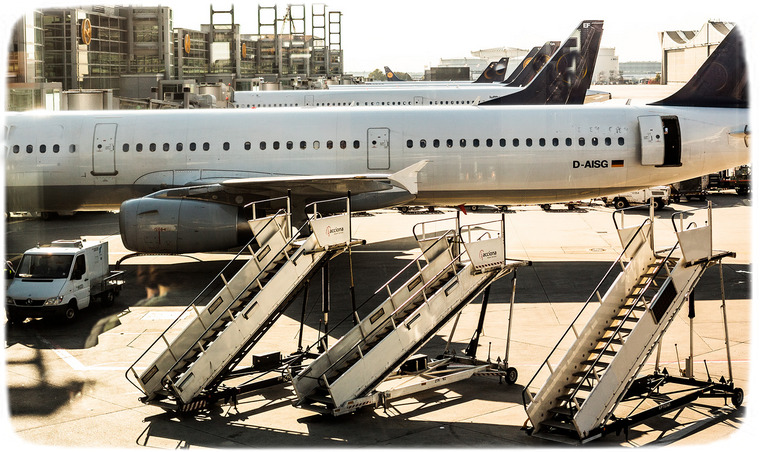
Total demand (measured in revenue passenger kilometres or RPKs) was 72.8% below September 2019 levels (only slightly improved over the 75.2% year-to-year decline recorded in August). Capacity was down 63% compared to a year ago and load factor fell 21.8 percentage points to 60.1%.
International passenger demand in September plunged 88.8% compared to September 2019, basically unchanged from the 88.5% decline recorded in August. Capacity plummeted 78.9% and load factor withered 38.2 percentage points to 43.5%.
Domestic demand in September was down 43.3% compared to the previous year, improved from a 50.7% decline in August. Compared to 2019, capacity fell 33.3% and the load factor dropped 12.4 percentage points to 69.9%.
"We have hit a wall in the industry's recovery. A resurgence in COVID-19 outbreaks--particularly in Europe and the US--combined with governments' reliance on the blunt instrument of quarantine in the absence of globally aligned testing regimes, has halted momentum toward re-opening borders to travel. Although domestic markets are doing better, this is primarily owing to improvements in China and Russia. And domestic traffic represents just a bit more than a third of total traffic, so it is not enough to sustain a general recovery," said Alexandre de Juniac, IATA's Director General and CEO.
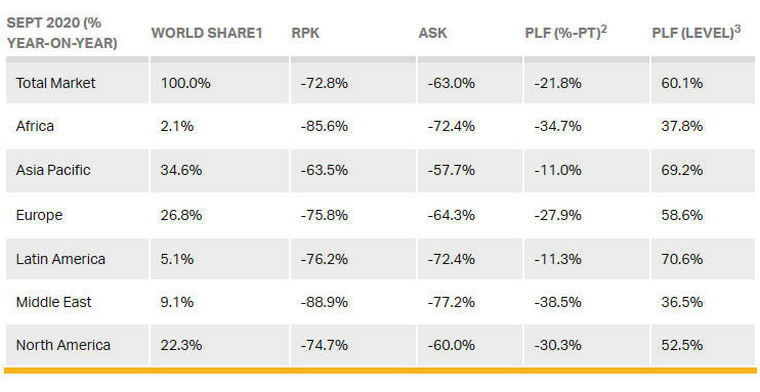
International Passenger Markets
European carriers' September demand collapsed 82.5% versus a year ago, which was a setback compared to an 80.5% decline in August. Europe was the only region to see a deterioration in traffic compared to August, owing to renewed infections that led to a wave of border closings. Capacity contracted 70.7% and load factor fell by 35.1 percentage points to 51.8%.
Asia-Pacific airlines' September traffic sank 95.8% compared to the year-ago period, virtually unchanged from a 96.2% drop in August. The region continued to suffer from the steepest fall in traffic as flight restrictions have remained stringent with little re-opening of borders. Capacity plummeted 89.6% and load factor shrank 46.8 percentage points to 31.7%, the lowest among regions.
Middle Eastern airlines posted a 90.2% traffic decline for September, improved from a 92.3% demand drop in August. Capacity tumbled 78.5% and load factor sank 40.9 percentage points to 34.4%.
North American carriers saw a 91.3% traffic decline in September, a slight improvement from a 92.0% decline in August. Capacity toppled 78.3% and load factor dropped 49.8 percentage points to 33.4%.
Latin American airlines faced a 92.2% demand drop in September, compared to the same month last year, versus a 93.4% decline in August versus August 2019. Capacity dived 87.9% and load factor dropped 29.3 percentage points to 53.3%, highest among the regions.
African airlines' traffic sank 88.5% in September, barely budged from an 88.7% drop in August. Capacity contracted 74.7%, and load factor fell 39.4 percentage points to 32.6%, which was the second lowest among regions.
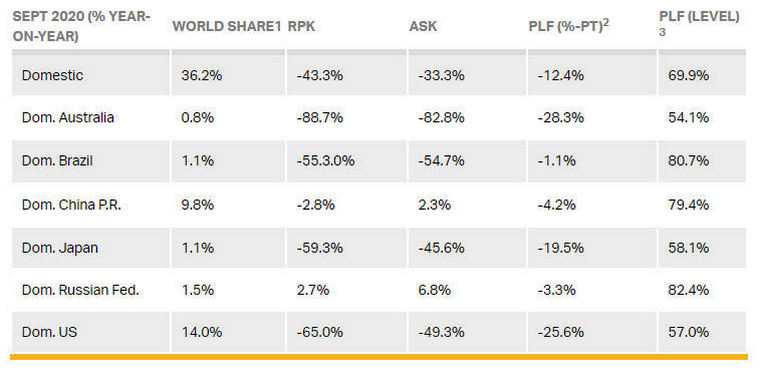
Domestic Passenger Markets
Australia's domestic traffic was down 88.7% compared to September 2019 virtually unchanged from August (-88.8%), amid continuing strict containment measures.
Brazil's domestic traffic fell 55.3% in September, an 11.7 percentage point improvement compared to August.
"Last week we provided analysis showing that the airline industry cannot slash costs fast enough to compensate for the collapse in passenger demand brought about by COVID-19 and government border closures and quarantines. Some 4.8 million aviation-sector jobs are imperilled, as are a total of 46 million people in the broader economy whose jobs are supported by aviation. To avoid this economic catastrophe, governments need to align on testing as a way to open borders and enable travel without quarantine; and provide further relief measures to sustain the industry through the dark winter ahead. A broader economic recovery is only possible through the connectivity provided by aviation," said de Juniac.
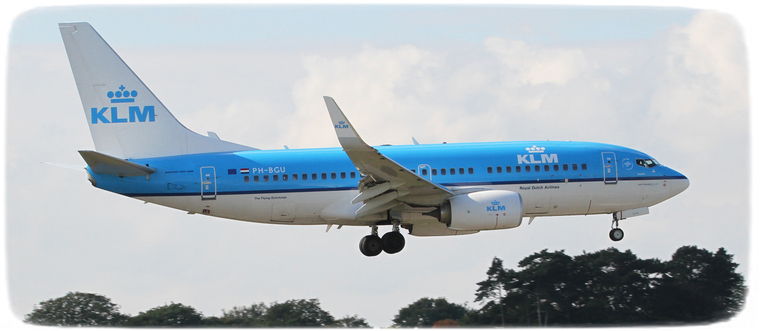
KLM is in the worst crisis of its 101 years of existence. COVID-19 has undermined the good results of recent years. In order to secure the future of the company and its network for the Netherlands, the loan and government guarantees on bank loans totalling EUR 3.4 billion are crucial. KLM is very grateful to the Dutch government for its support and ability to provide financing at this time.
The government has set requirements for the granting of the aforementioned loan package. An important requirement in this respect is that all KLM employees must make a labour contribution during the term of the loan (expected until 2025). In recent months intensive negotiations have taken place with the trade unions in the three collective labour agreement domains (Cockpit, Ground and Cabin) about the fulfilment of the employment condition contribution of KLM employees, in accordance with the percentages and structure required by the government.
The results of these negotiations have been laid down in 'outline collective labour agreement agreements' and are included as such in the restructuring plan that KLM submitted on 1 October. These outline agreements give concrete form to this contribution until the beginning of 2022 (Cockpit) and the end of 2022 (Ground and Cabin).
In October, KLM and the trade unions worked on the main lines of these agreements in detailed agreements. At the same time, on behalf of the government, the Minister of Finance, with the help of a consultancy firm, is assessing the entire submitted by KLM restructuring plan. This evaluation should be completed by the end of October. Specifically, in the area of employment conditions, the Minister emphasised to KLM that it should be more explicitly agreed and laid down that the contribution of all KLM employees should apply for the full duration of the loans.
In order to meet this requirement, without repeating the negotiations altogether, there is a 'commitment clause' which will be included in the agreements between KLM and the trade unions. In this clause, all unions must each commit themselves to continue to make the labour conditions contribution with all KLM employees in accordance with the requirement of the Ministry of Finance (whereby the exact details are up to KLM and the unions).
The management of KLM yesterday made an urgent appeal to the unions to agree to this. Today five trade unions CNV, De Unie, NVLT, VNC and VKP signed this clause. FNV (Cabin and Ground) is still considering the matter. The pilots' union VNV has not signed this clause. This means that KLM does not meet the requirements set by the Minister. This outcome was communicated to the Minister this afternoon.

This event also marks Airbus' first A330-800 delivery. The new generation widebody aircraft is the latest addition to Airbus' product line, highlighting the company's strategy to keep offering its airline customers unbeatable economics, increased operational efficiency and superior passenger comfort with proven latest technology platforms. Thanks to its tailored mid-sized capacity and its excellent range versatility, the A330neo is considered the ideal aircraft to operate as part of the post-COVID-19 recovery.
Kuwait Airways Chairman, Captain Ali Mohammad Al-Dukhan stated: "Kuwait Airways takes pride in its continued relationship and cooperation with Airbus for the past four decades.
Kuwait Airways' A330neo will comfortably accommodate 235 passengers, featuring 32 fully-flat beds in Business Class and 203 spacious seats in Economy Class while offering a large cargo hold capable of accommodating generous passenger baggage allowances.
The A330neo is a true new-generation aircraft, building on the features of the popular A330 and leveraging technology developed for the A350 XWB. Powered by the latest Rolls-Royce Trent 7000 engines, and featuring a new wing with increased span and A350 XWB-inspired Sharklets, the A330neo provides an unprecedented level of efficiency - with 25% lower fuel burn per seat than previous generation competitors. Equipped with the Airspace cabin, the A330neo offers a unique passenger experience with more personal space and the latest generation in-flight entertainment system and connectivity.
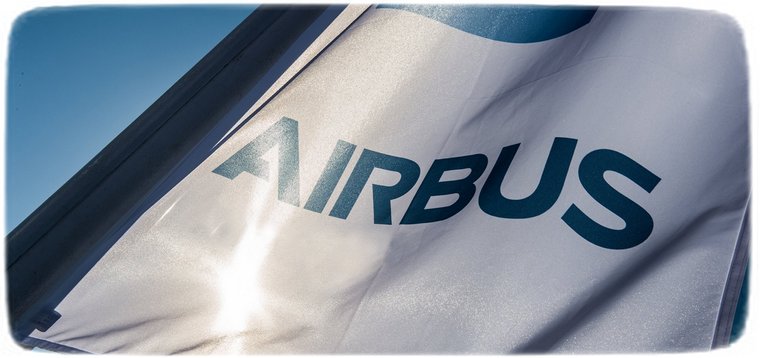
Airbus SE (stock exchange symbol: AIR) reported consolidated financial results for the nine months ended 30 September 2020.
"After nine months of 2020, we now see the progress made on adapting our business to the new COVID-19 market environment. Despite the slower air travel recovery than anticipated, we converged commercial aircraft production and deliveries in the third quarter and we stopped cash consumption in line with our ambition," said Airbus Chief Executive Officer Guillaume Faury. "Furthermore, the restructuring provision booked shows our discussions with social partners and stakeholders have advanced well. Our ability to stabilise the cash flow in the quarter gives us confidence to issue a free cash flow guidance for the fourth quarter."
Net commercial aircraft orders totalled 300 (9m 2019: 127 aircraft) with the order backlog comprising 7,441 commercial aircraft as of 30 September 2020. Airbus Helicopters booked 143 net orders (9m 2019: 173 units), including 8 H160s and 1 H215 during the third quarter. Airbus Defence and Space's order intake increased to 8.2 billion, with the third quarter including an additional A330 MRTT as well as contract wins in telecommunications satellites.
Consolidated revenues decreased to 30.2 billion (9m 2019: 46.2 billion), driven by the difficult market environment impacting the commercial aircraft business with around 40% fewer deliveries year-on-year. A total of 341 commercial aircraft were delivered (9m 2019: 571 aircraft), comprising 18 A220s, 282 A320 Family, 9 A330s and 32 A350s. During the third quarter of 2020, a total of 145 commercial aircraft were delivered including 57 deliveries in September. Airbus Helicopters reported broadly stable revenues, reflecting lower deliveries of 169 units (9m 2019: 209 units) partially compensated by higher services. Revenues at Airbus Defence and Space mainly reflected lower volumes in Space Systems and for the A400M as well as the impact of COVID-19 on business phasing. A total of 5 A400M military airlifters were delivered over the nine-month period with Luxembourg becoming a new operator.
Consolidated EBIT Adjusted - an alternative performance measure and key indicator capturing the underlying business margin by excluding material charges or profits caused by movements in provisions related to programmes, restructuring or foreign exchange impacts as well as capital gains/losses from the disposal and acquisition of businesses - totalled -125 million (9m 2019: 4,133 million).
Airbus' EBIT Adjusted of -641 million (9m 2019: 3,593 million, mainly reflected the reduced commercial aircraft deliveries and lower cost efficiency. It also included -1.0 billion of COVID-19 related charges. The necessary steps have been taken to adapt the cost structure to the new levels of production and the benefits are materialising as the plan is executed. At the end of September, the number of commercial aircraft that could not be delivered due to COVID-19 had reduced to around 135.
Airbus Helicopters' EBIT Adjusted increased to 238 million (9m 2019: 205 million), reflecting a favourable mix, higher services, a positive contribution from programme execution as well as lower Research & Development (R&D) expenses. During Q3, the first five-bladed H145 helicopter was delivered following certification by the European Union Aviation Safety Agency in Q2.
EBIT Adjusted at Airbus Defence and Space decreased to 266 million (9m 2019: 355 million), mainly reflecting the lower volume in Space Systems, especially in the launcher business due to the impact of COVID-19, partly offset by cost reduction measures. The division's restructuring plan updated in H1 2020 is underway and negotiations with the social partners are progressing. The related provision has been recorded in Q3 as part of the EBIT adjustments.
Capital expenditure in the nine-month period was around 1.2 billion, down by around 0.3 billion year-on-year, driven by a reduction in spending in the third quarter in line with the company's cash containment efforts. Consolidated free cash flow was -12,276 million (9m 2019: -5,127 million). The consolidated net debt position was -242 million on 30 September 2020 (year-end 2019 net cash position: 12.5 billion) with a gross cash position of 18.1 billion (year-end 2019: 22.7 billion).
Outlook
The company's full year 2020 guidance was withdrawn in March. Given the continued impact of COVID-19 on the business and the associated risks, no new guidance is issued on commercial aircraft deliveries or EBIT.
As the basis for its Q4 2020 guidance for free cash flow before M&A and customer financing, the company assumes no further disruptions to the world economy, air traffic, Airbus' internal operations and to its ability to deliver products and services.
On that basis, the company targets at least breakeven free cash flow before M&A and customer financing in the fourth quarter of 2020.
On 21 October 2020, the company signed a new 6 billion Revolving Syndicated Credit Facility partially terming out the ?15 billion credit facility by ?3 billion and in order to refinance its existing ?3 billion Revolving Syndicated Facility.

Air New Zealand has today released its latest sustainability report, which outlines the airline's progress against its sustainability goals over the past year. The report is focused on the most material sustainability opportunities and challenges Air New Zealand is tackling - supporting people and communities, tackling climate change, supporting New Zealand through sustainable tourism, working with our suppliers and reducing waste and plastic.
Air New Zealand Chief Executive Officer Greg Foran says this year's report reinforces the airline's ongoing commitment to sustainability, despite the current challenging operating environment.
"It has certainly been a very challenging year for the aviation sector and for Air New Zealand. We have worked hard to ensure the actions we have taken over past months will enable the airline to emerge competitively and sustainably from the Covid-19 crisis.
"It has been particularly pleasing to see voluntary offsetting rates increase in the past year - through our voluntary carbon offsetting function FlyNeutral, together with our customers we have contributed close to $1.5 million towards permanent native forestry projects across New Zealand and achieved an average uptake rate across all retail storefronts of 7.1 percent which is fantastic when you take into account the drop off in passenger numbers this year. Thank you to all our customers who continue to choose to offset their emissions."
Air New Zealand 2020 sustainability highlights
10,557 tonnes CO-2e saved through carbon reduction programme
35,045 tonnes of cargo carried, including 20,000 tonnes under the International Airfreight Capacity Scheme commenced with the Ministry of Transport in May 2020
1% uptake rate of voluntary carbon offsetting across all activated online sites globally (up from 4.6% in the previous year)
498 threatened species and 42 conservation dogs relocated
More than 8,900 blankets donated to a range of charitable organisations
More than 770,000 dry goods including muesli, crackers and sauces redistributed to New Zealand food banks
7 tonnes of sealed, unused catering items reinjected onto aircraft instead of going to landfill.
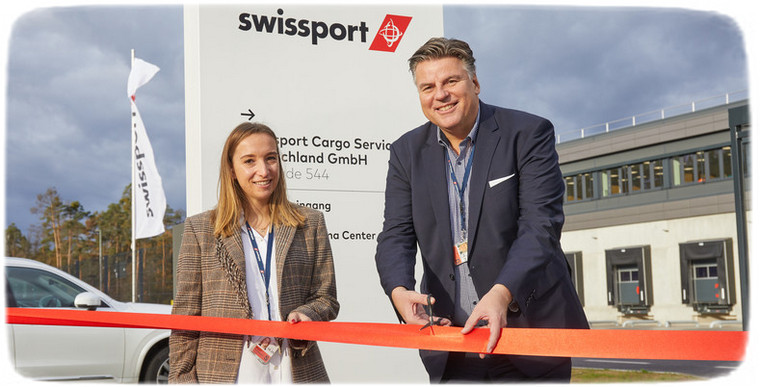
Swissport has opened a brand-new air cargo facility at Frankfurt Airport. The 17,000 sqm warehouse with an integrated Swissport Pharma Centre is equipped with state-of-the-art handling technology and has direct tarmac access. An automated material handling system ensures efficient air cargo handling and storage while the FAIR@Link slot booking app controls the access of trucks and optimizes workflows.
Swissport Cargo Services Germany has started operations at its brand new 17,000 sqm facility at Frankfurt Airport. With the new building, Swissport increases its handling capacity by about 50% compared to the former facility at Frankfurt΄s Cargo City South logistics district. The integrated Swissport Pharma Centre covers 1,560 sqm, expanding the space reserved for temperature-controlled shipments by a factor of seven. 1,300 sqm are dedicated for shipments which require a 15°C to 25°C storage temperature, 260 sqm are available for pharmaceuticals in the 2° to 8°C range. An additional 2,400 sqm of office space will be available for the head office of Swissport Cargo Services Germany and administrative and operational roles. The building will also be home to the operations offices for Air France-KLM, Swissport's main customer in Frankfurt. The warehouse, locally known as FRA544, was built in time in less than a year after the ground breaking in November 2019.
The additional space and the prime location of FRA544 enables Swissport to expand its customer portfolio and handle the anticipated increase of freight volumes for standard cargo and pharmaceuticals, including a COVID-19 vaccine which is expected to enter global distribution in the coming months.
Swissport has signed a long-term lease agreement for the new location and has invested heavily in digitalization and equipment, including an all-electric powered fleet of ground service vehicles for the handling of shipments inside the warehouse. To raise the efficiency of the handling processes, unit load devices (ULD) are stored and retrieved by an automated material handling system (MHS) with a storage capacity of 115 main deck ULDs. The photovoltaic system on the roof of the building is the largest of its kind at Frankfurt Airport. It feeds more than 1.5 million kWh of sustainable solar energy per year, making it one of the most sustainable airport buildings.
To guarantee the efficient and automated handling of trucks delivering and picking up goods, Swissport relies on the "slot booking procedure" of FAIR@Link. It will make sure Swissport receives information about planned truck deliveries and collections with more lead time and improved accuracy. This allows for efficient resource planning, helps avoid peaks and mitigates the risk of congestion at the counters and ramps. FAIR@Link will in future also support Swissport with regards to the management of empty ULD and road feeder services (RFS / trucking)
UNITED AIRLINES LAUNCHES WORLD'S FIRST FREE TRANSATLANTIC COVID-19 TESTING PILOT

United Airlines today announced the world's first free transatlantic COVID-19 testing pilot program for customers. From November 16 through December 11, the airline will offer rapid tests to every passenger over 2 years old and crew members on board select flights from Newark Liberty International Airport (EWR) to London Heathrow (LHR), free of charge. Anyone who does not wish to be tested will be placed on another flight, guaranteeing everyone on board other than children under two will have tested negative before departure.
United will share customer feedback of this pilot with governments on both sides of the Atlantic to further demonstrate the effectiveness of these programs as an alternative to mandatory quarantines or duplicative travel restrictions. United has seen a positive impact on travel demand and significant increases in customer load factors and revenue when testing options are available.
United will collaborate with Premise Health, who will administer the rapid testing pilot program for the EWR-LHR flight. The test will be given to passengers traveling on United Flight 14, departing at 7:15 p.m., Mondays, Wednesdays and Fridays. Appointments for the test are required and customers are advised to schedule their tests at least three hours before their flight. An on-site testing facility will be located at the Newark United Club near Gate C93. For more information on the testing program, please visit united.com/covid-testing.
Before the pandemic, United operated six daily flights between New York/Newark and London on a 767-300ER (76L), offering not only the most frequency among U.S. carriers but also the most business class and Premium Economy seats. Click here for b-roll and still images of United Airlines' COVID-19 testing programs.
United was the first airline to announce optional pre-flight COVID-19 testing for customers. Earlier this month, the airline started offering customers traveling from San Francisco International Airport to Hawaii the option to take a same-day, pre-flight rapid test at the airport or a conveniently located drive-through test, for a fee. The program allows customers with a negative result to bypass Hawaii's mandatory quarantine requirements and enjoy their time on the islands sooner. In the first 10 days, October 15 - 25, the San Francisco to Hawaii flights have seen a nearly 95% increase in passengers compared to the prior two-week period. United believes these positive trends illustrate a strong and pent-up demand for travel, customers' willingness to use pre-flight COVID-19 testing and the importance of these programs as a means of opening borders.
Just last week, United participated in a successful test program between New York/Newark and London of CommonPass, a digital health pass, aimed at enabling safer travel and the reopening of international borders. Customers who chose to participate in the program were able to seamlessly provide their COVID-19 test results to relevant governments.
Since the start of the pandemic, United has been a leader among U.S. airlines in enacting new policies and innovations designed to keep employees and passengers safer when traveling. It was the first U.S. airline to mandate masks for flight attendants, quickly following with all customers and employees. United was also among the first U.S. carriers to announce it would not permit customers who refused to comply with the airline's mandatory mask policy to fly with them while the face mask policy is in place. United was also the first U.S. airline to roll out touchless check-in for customers with bags and the first to require passengers to take an online health assessment before traveling. And last month, the airline announced it will apply Zoono Microbe Shield, an EPA registered antimicrobial coating that forms a long-lasting bond with surfaces and inhibits the growth of microbes, to its entire mainline and express fleet before the end of the year.
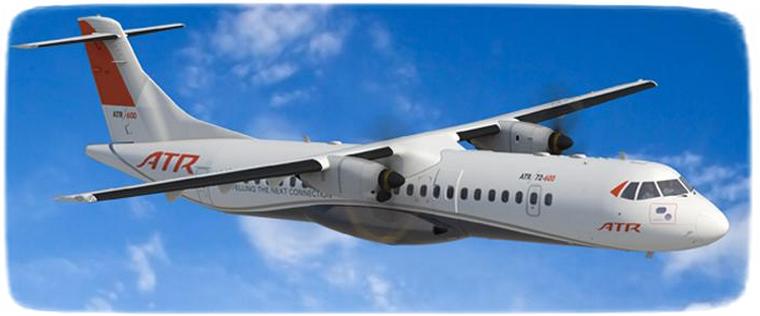
ATR, the world number one regional aircraft manufacturer, has released two new editions of its Upgrades Catalogues. They now offer 120 solutions - developed either internally or externally - to ATR operators wishing to upgrade their aircraft with state-of-the-art designs and capabilities.
The creation of a catalogue of external changes - Supplemental Type Certificates (STC) and minor modifications developed and provided by external Design Organisation Approval (DOA) partners - is a major step forward for the market-leading turboprop manufacturer. ATR can now complement its own expertise with the know-how and resources of reliable external partners - Aero Engineering Services, Akka Technologies, ECM Skyservices, Eirtech Aviation Services, PMV Engineering and Recaro.
With solutions ranging from cabin reconfigurations, in-flight entertainment systems and avionics upgrades, to freighter conversions, ATR operators have access to a vast range of possibilities for their brand new or second-hand aircraft to explore new business opportunities and enhance passenger experience and aircraft performance. All of these solutions have been either developed by ATR or benefit from the manufacturer's expertise, which guarantees their optimal integration within the aircraft environment.
"The combination of these two catalogues enables us to bring additional quick and competitive solutions to our family of operators and enhance the residual value of their aircraft. Now there are seven great companies designing the best products and services to support ATR operators, so that they can continue to deliver essential connectivity across the globe. These new catalogues provide state-of-the-art solutions, either for the transport of passengers or for cargo operations." said David Brigante, Senior Vice-President Programmes and Customer Support and Services at ATR. He added: "This is very much in line with ATR's focus on continuous innovation, whether it is through the design of innovative services or by revisiting our business model to further enhance our response to the market requirements."
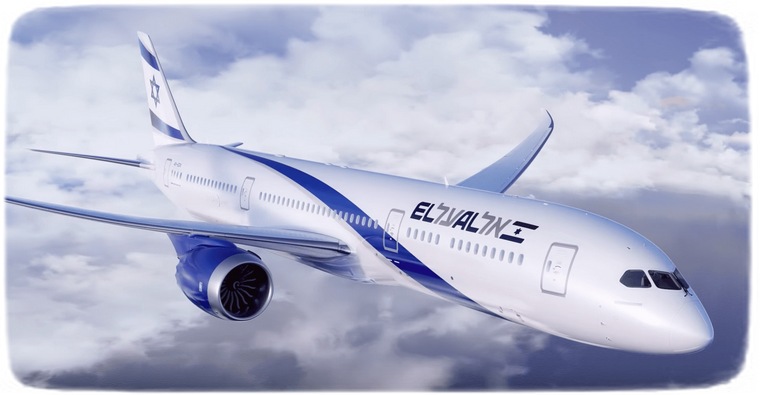
At the same time, the company will renew its codeshare with Swiss and will also have available tickets for sale on flights operated on the route also by Swiss. In total, the company will market 4 flights a week from Ben Gurion Airport to Zurich and return.
Zurich joins the other EL AL destinations that are operating: New York, Paris, London, Frankfurt, Amsterdam, Miami, Los Angeles, Kiev, Belgrade and Athens.
For more details and reservations, customers should contact their travel agents or the EL AL website.
Customers who hold existing tickets or who will purchase tickets planned for departures until 28.2.21 will be able to make changes free of charge of change fees, except for price differences, as applicable. EL AL operates in accordance with the guidelines of the Ministry of Health and the "Blue Badge", information regarding procedures at the airport and EL AL flights during the Corona era can be found on the EL AL website.
Currently, entry into Israel is possible only for Israeli passport holders, in accordance with government guidelines. For more details and updates contact the Ministry of Health website. It is recommended to keep up to date with information about the entry guidelines for the various countries on the IATA website.

"We are very pleased to have earned this prestigious distinction in what is for us a key customer segment," says SWISS Chief Commercial Officer Tamur Goudarzi Pour. "And we see it first and foremost as a tribute to all our people at SWISS who continue to do such outstanding work in these highly challenging times - be it behind the scenes or in direct contact with our customers."
www.youtube.com/channel/UCCuRVZAGodT6sztTeXBGeMw
and subscribe to our YouTube channel

 |
 |
 Copyright © 2024 Pilot's Post PTY Ltd
The information, views and opinions by the authors contributing to Pilots Post are not necessarily those of the editor or other writers at Pilots Post.
Copyright © 2024 Pilot's Post PTY Ltd
The information, views and opinions by the authors contributing to Pilots Post are not necessarily those of the editor or other writers at Pilots Post.